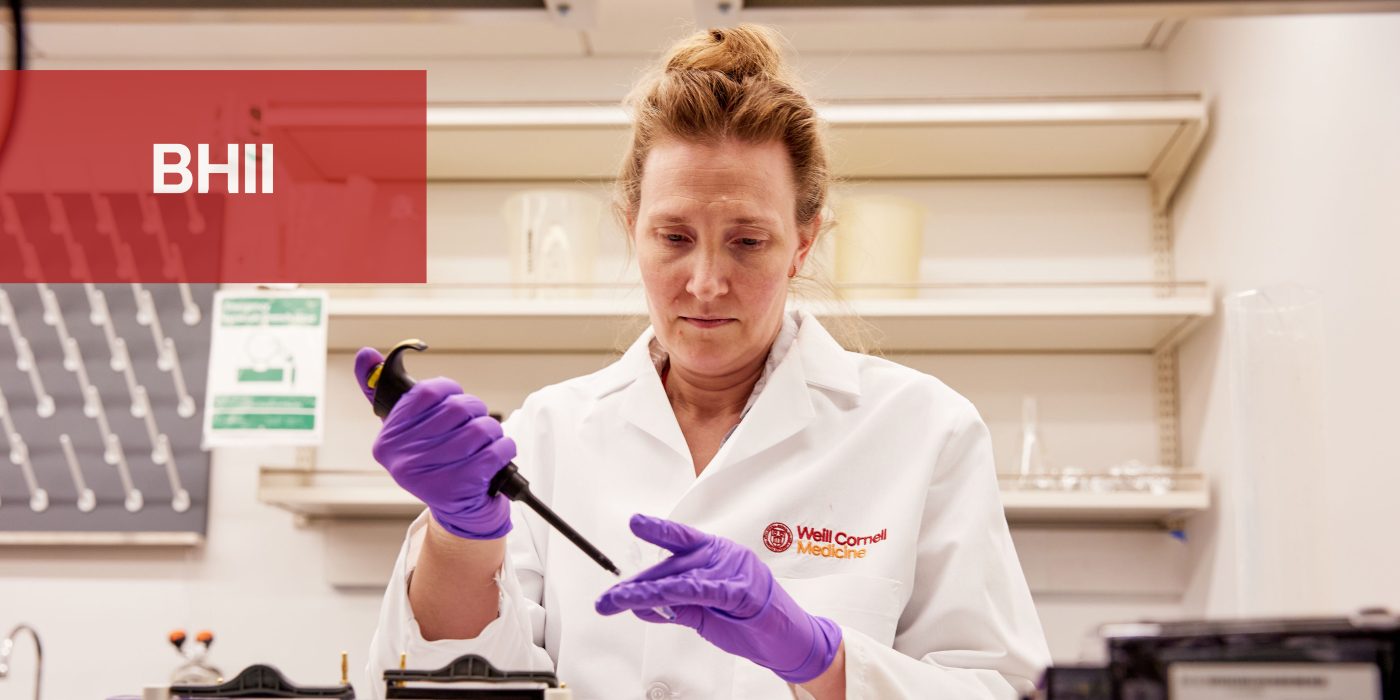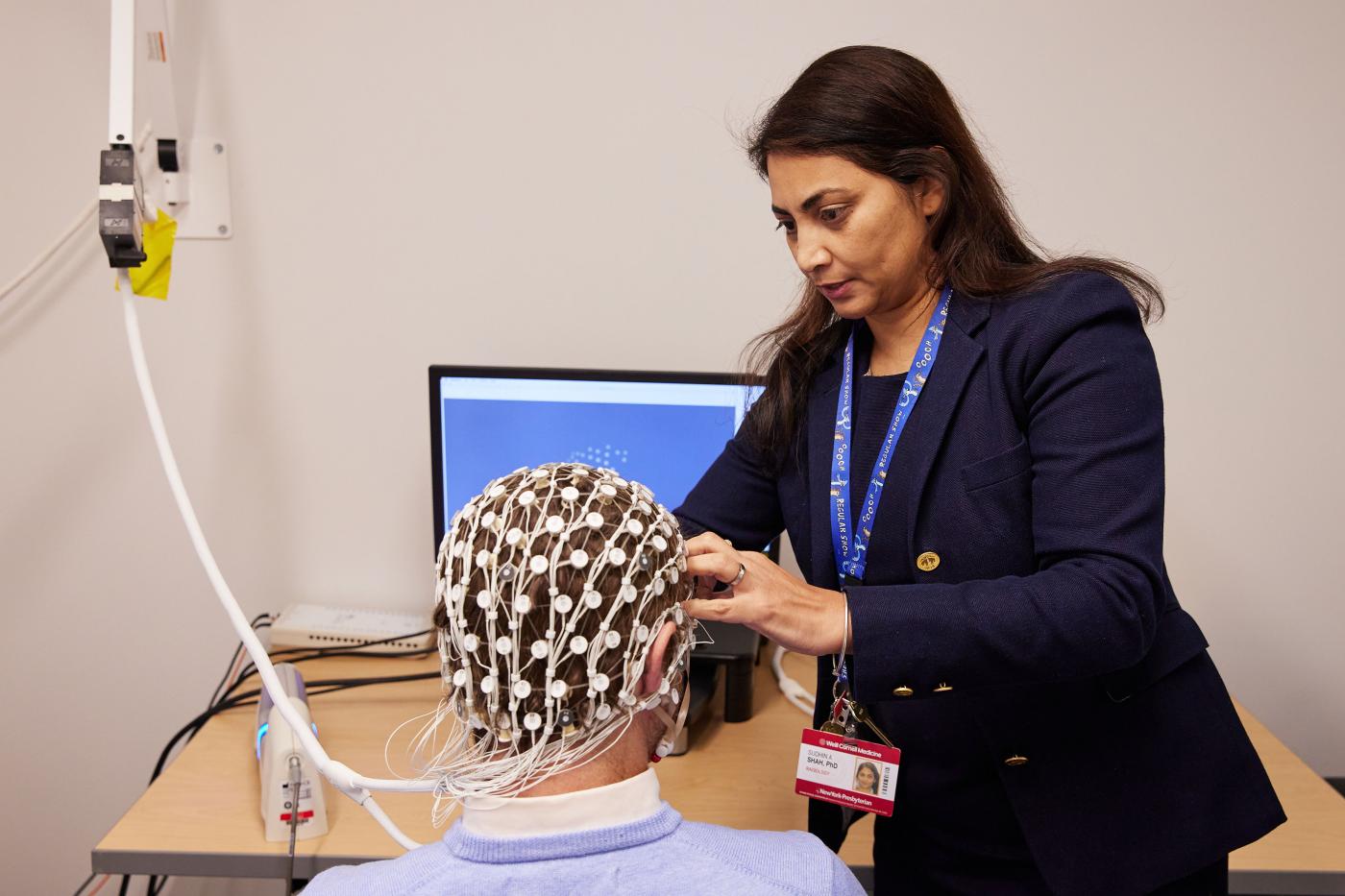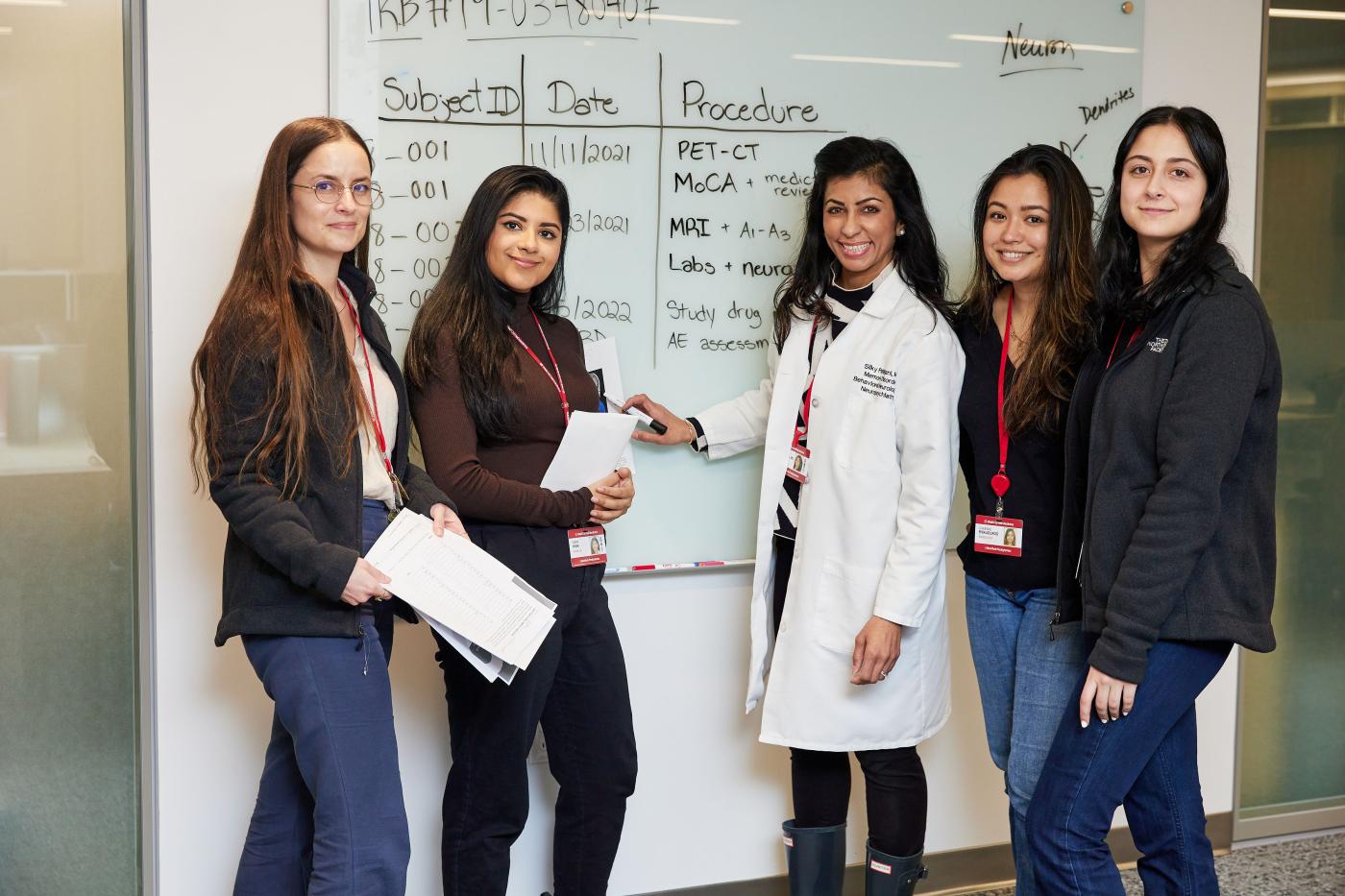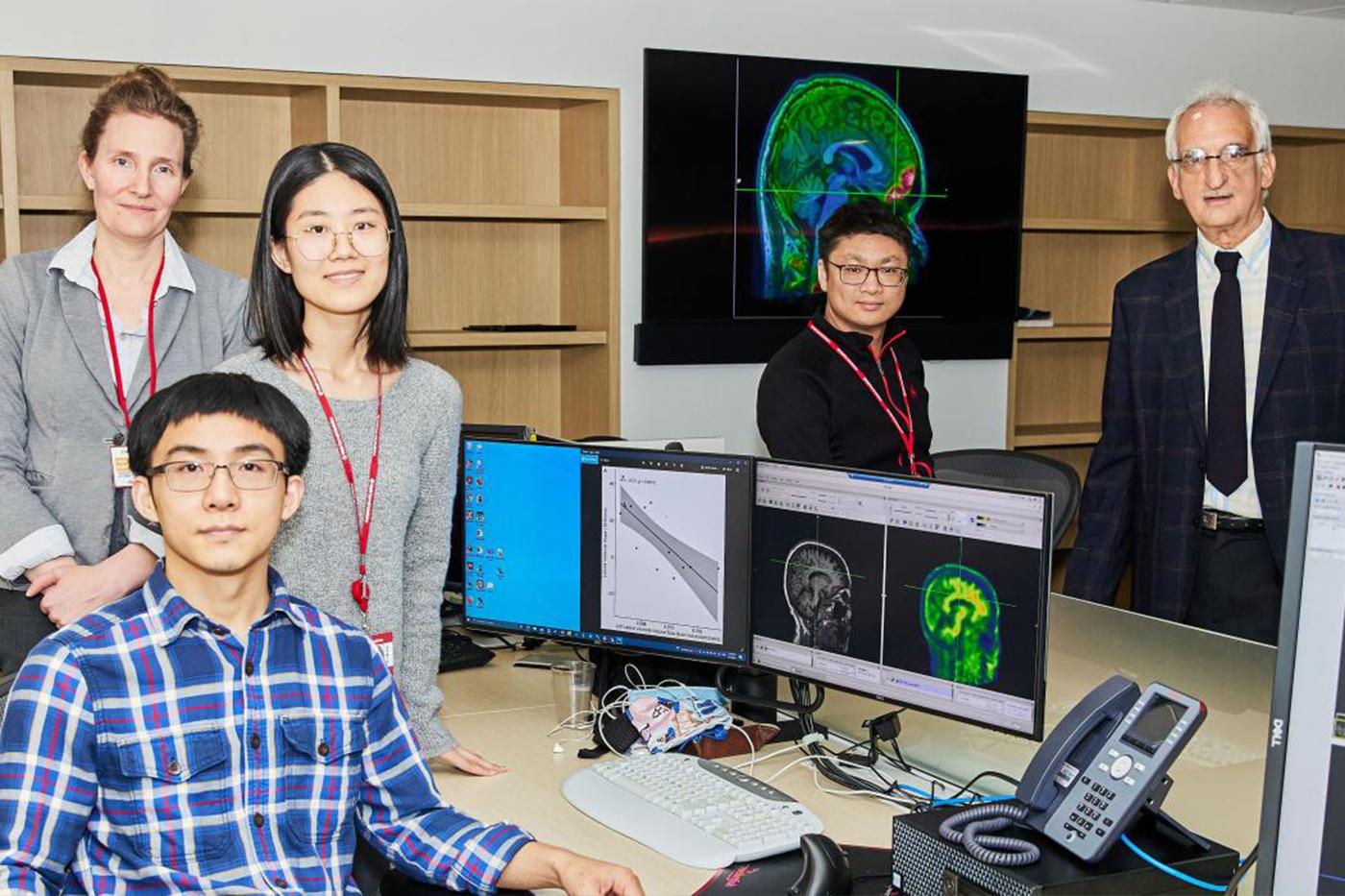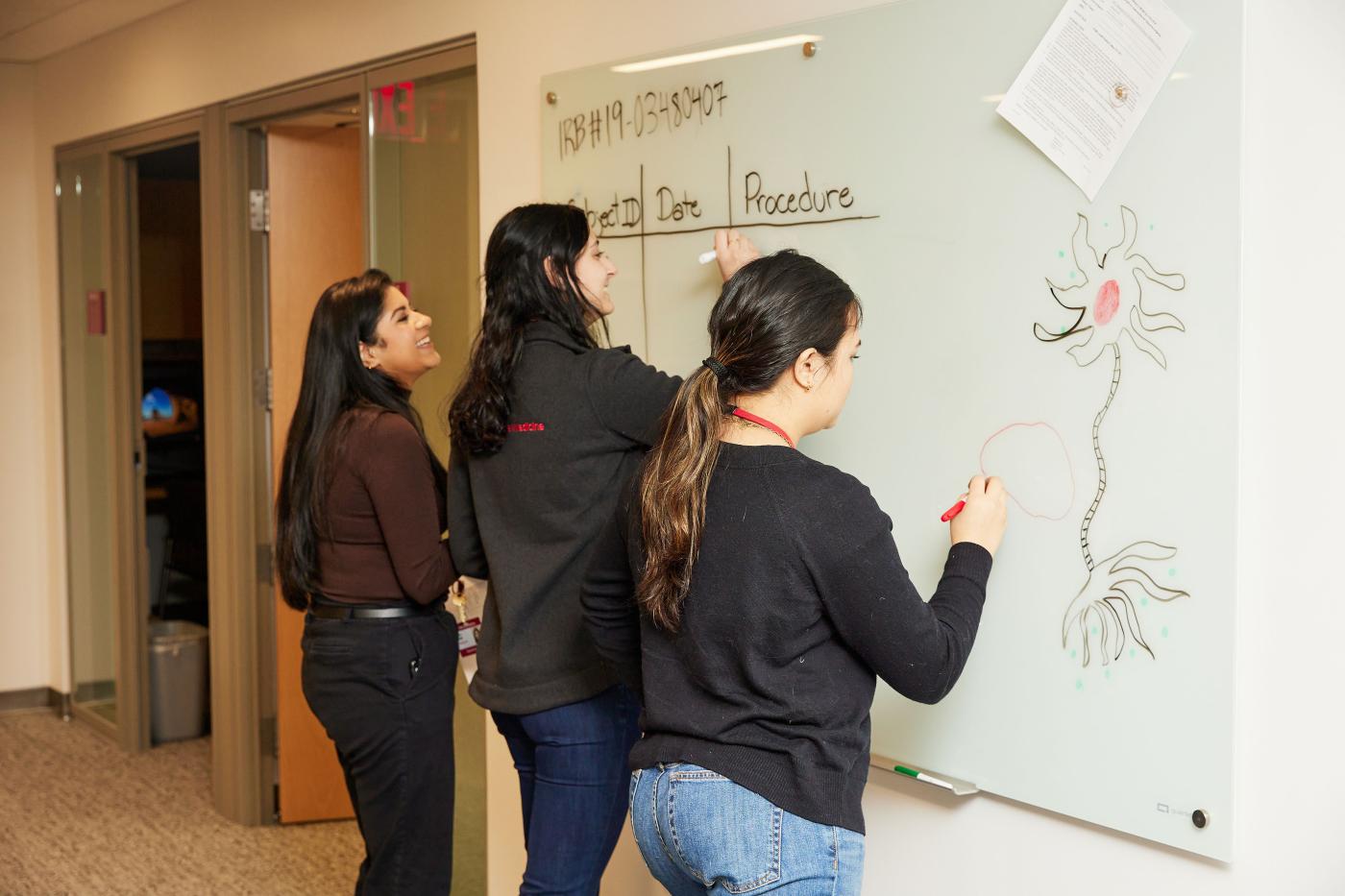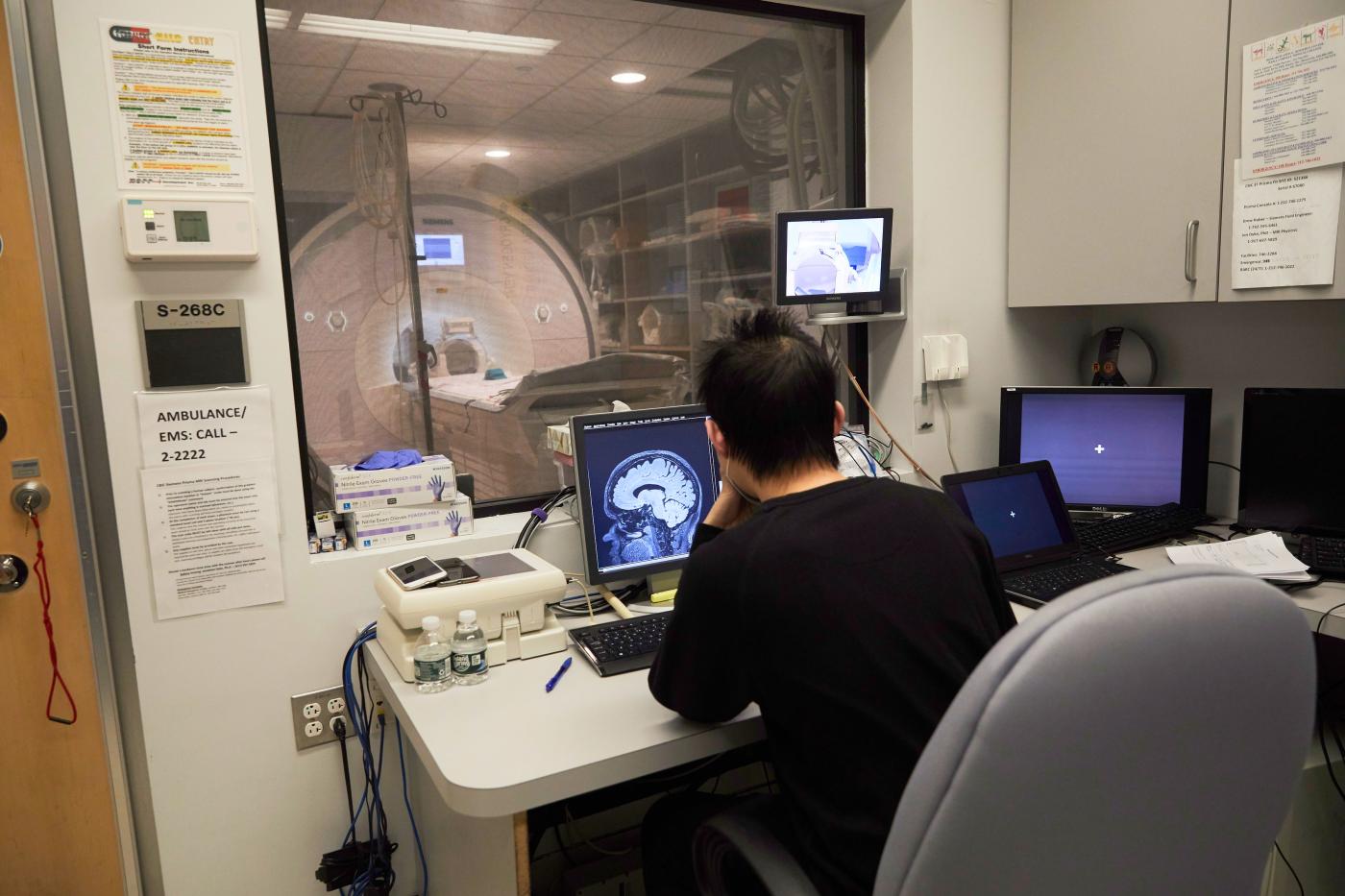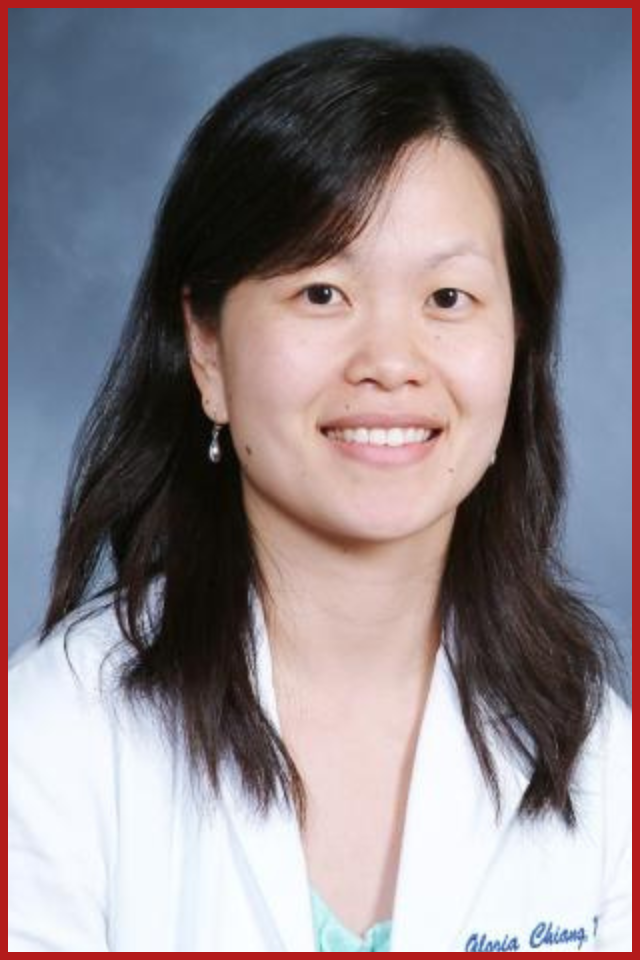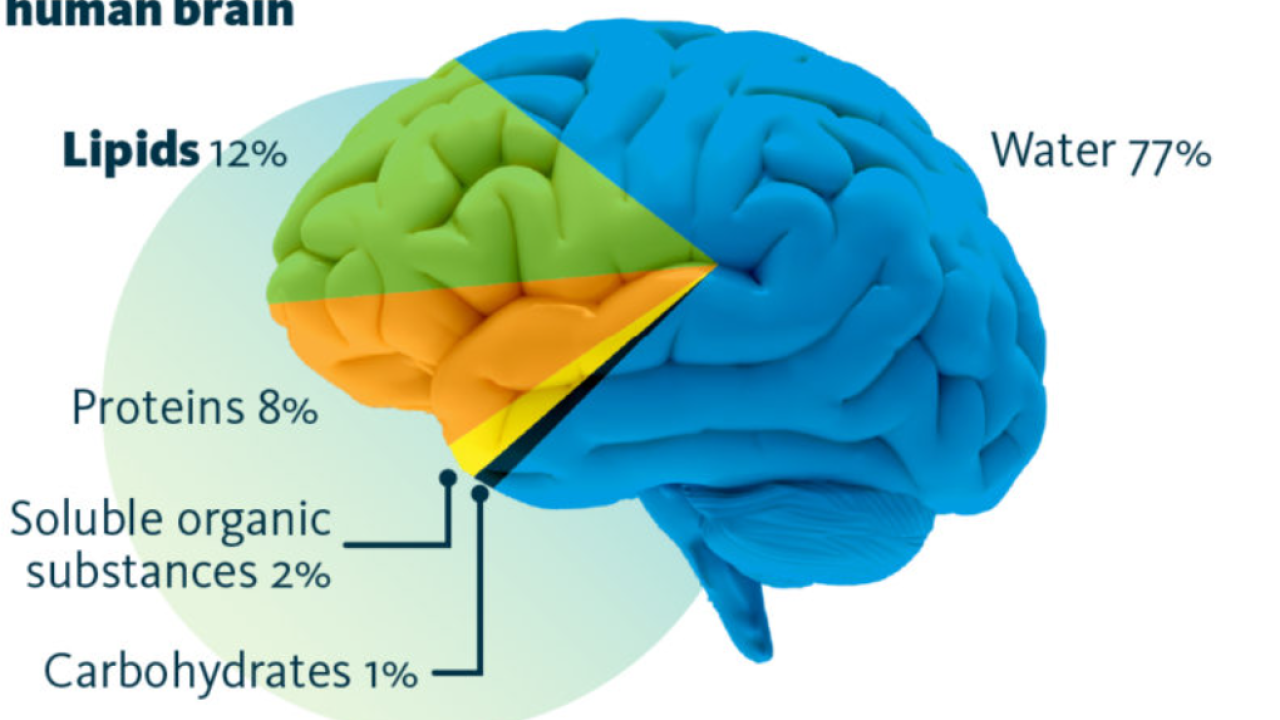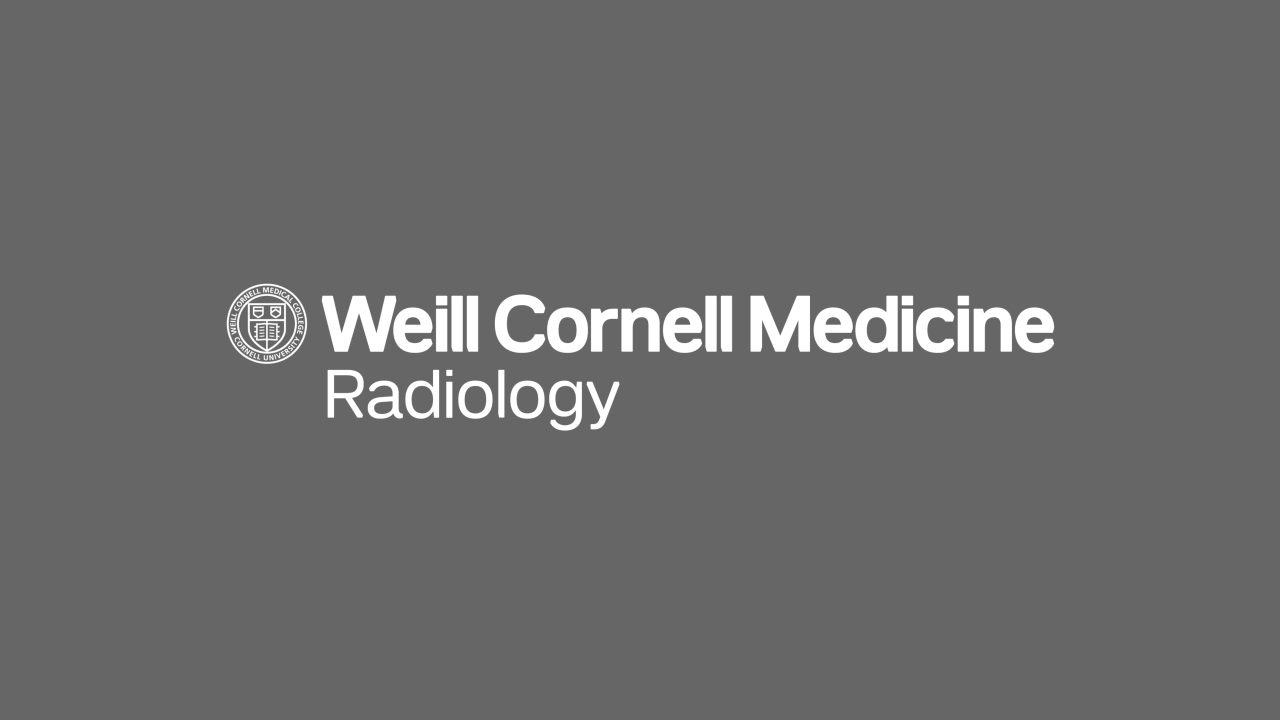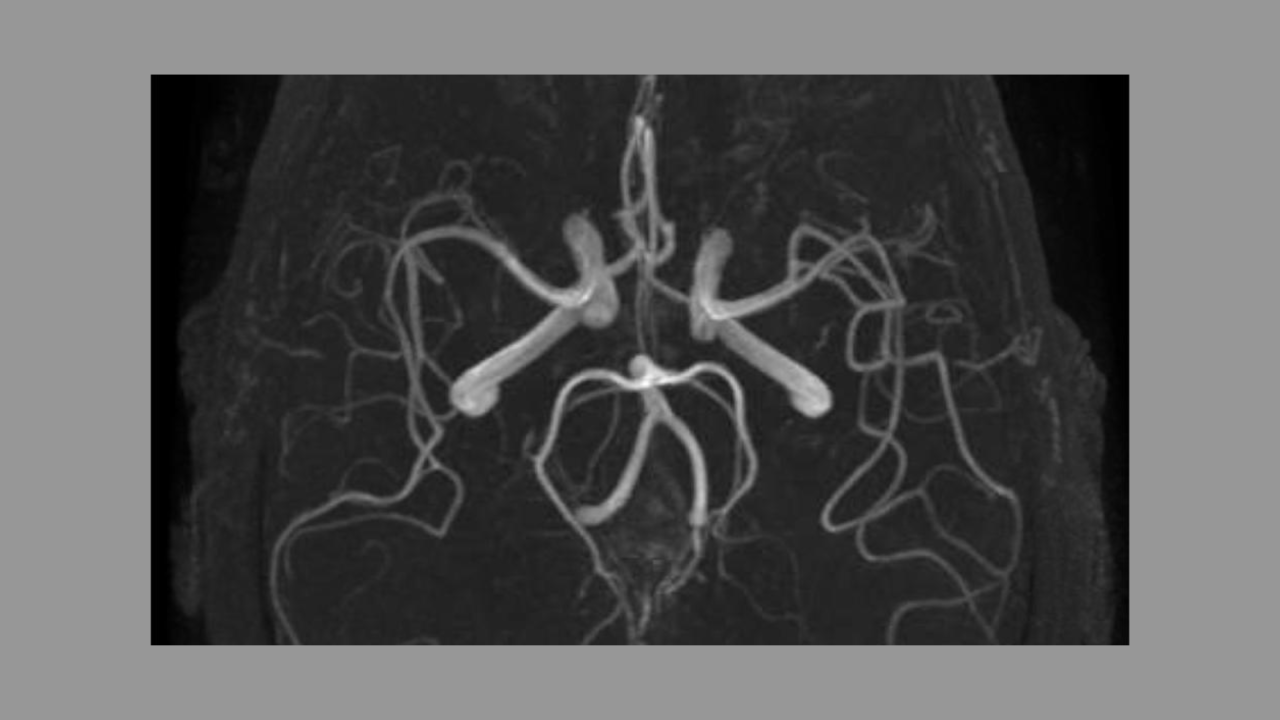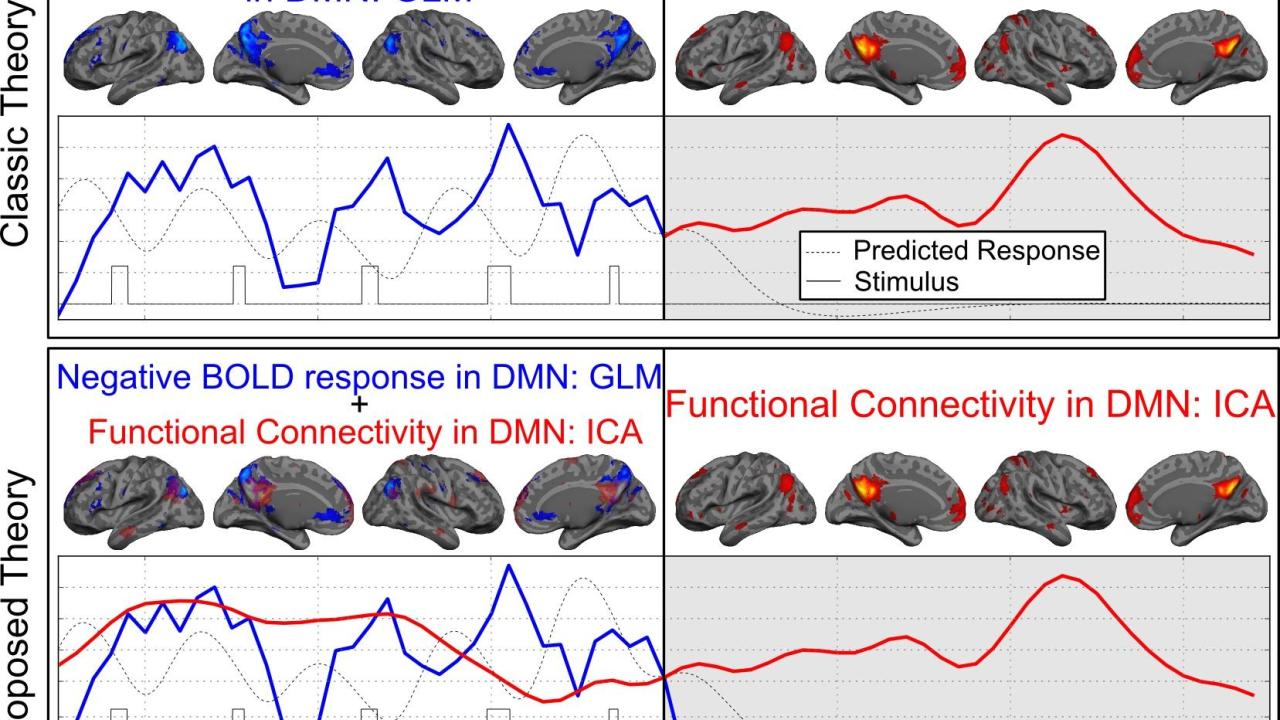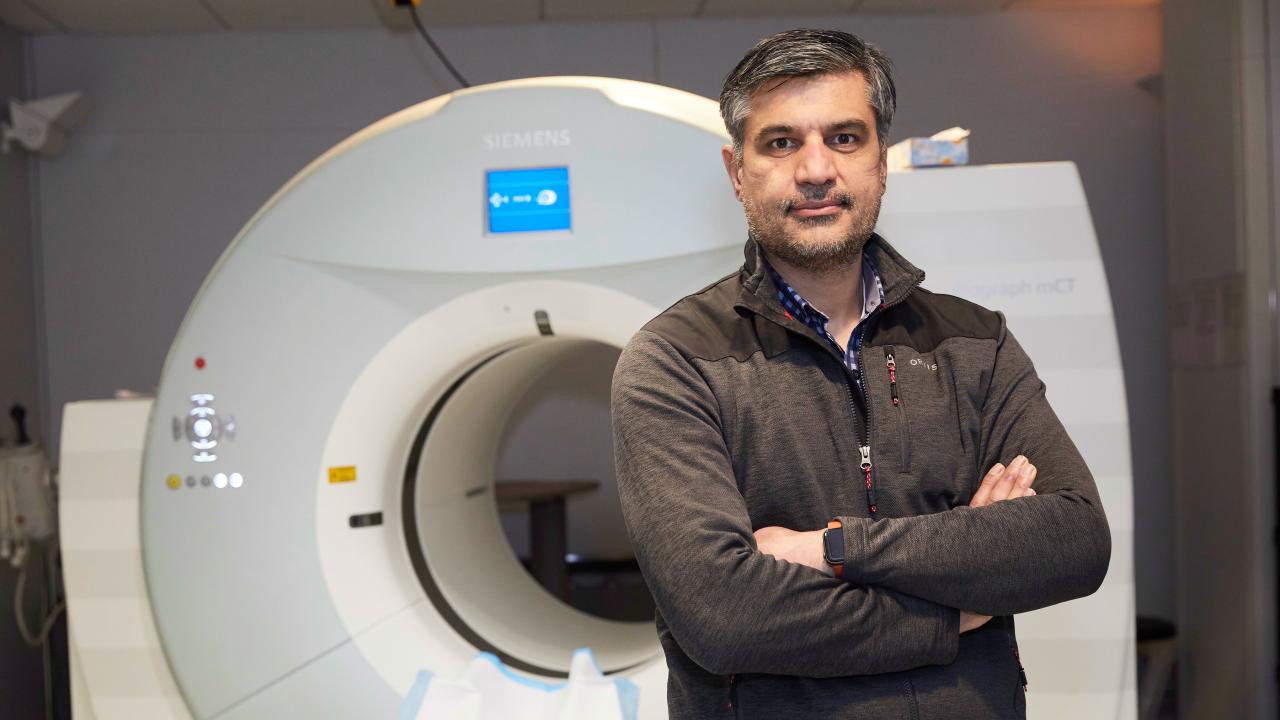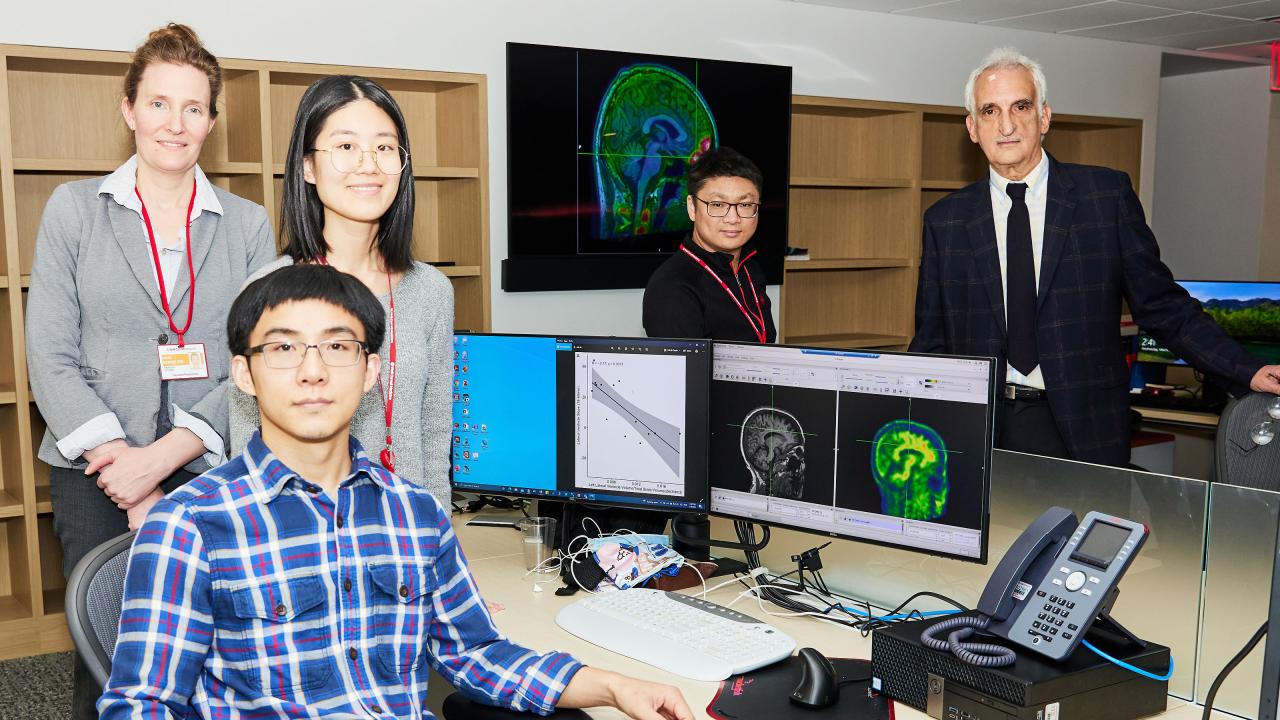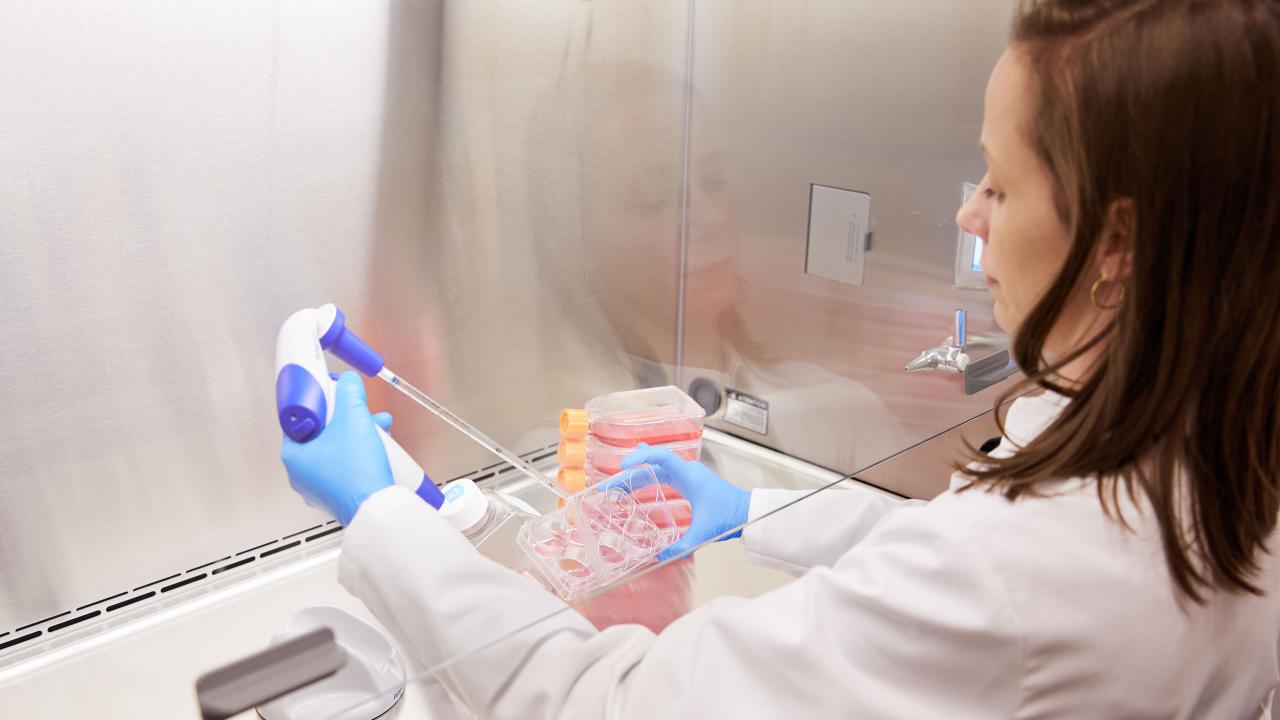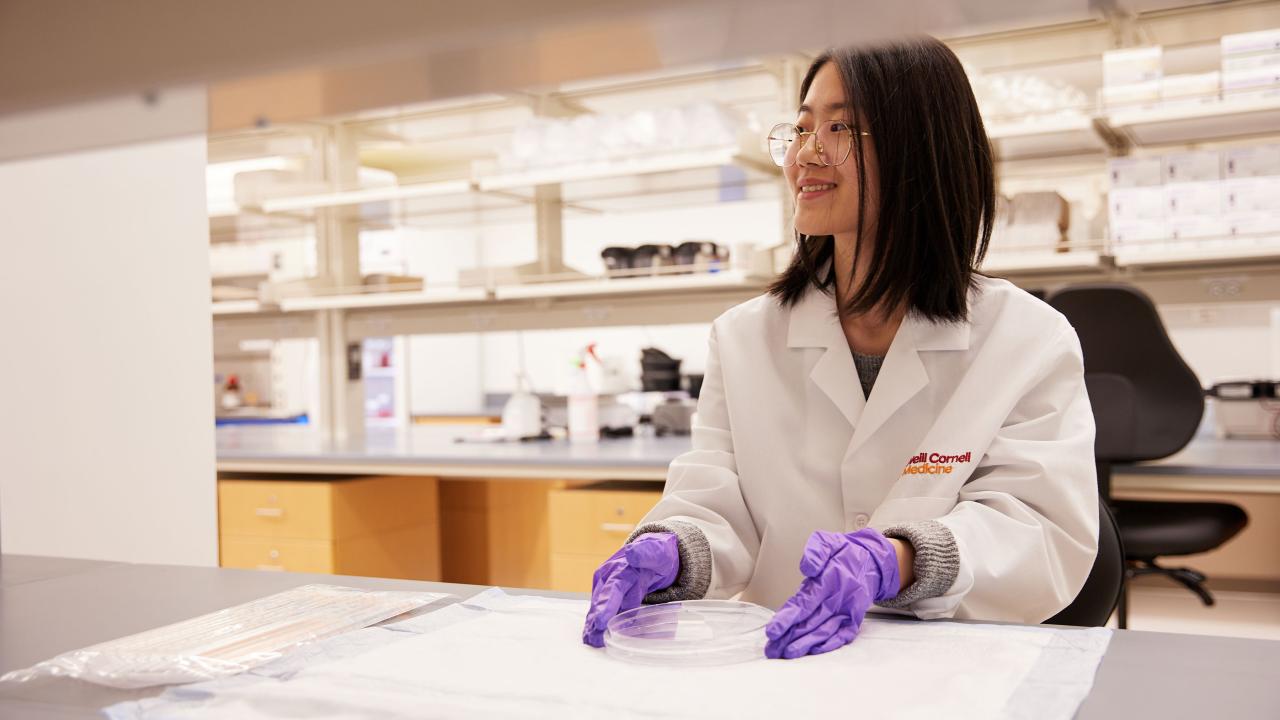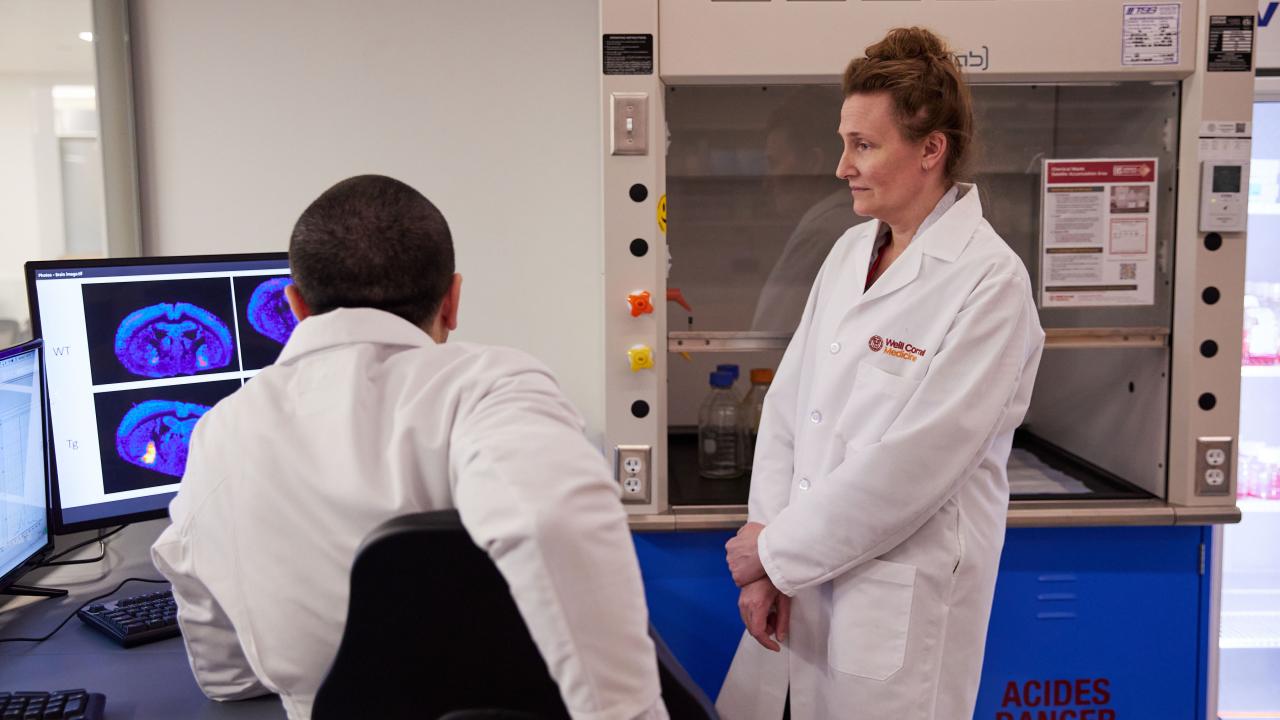BHII Mission
The Brain Health Imaging Institute (BHII) of the Weil Cornell Medicine (WCM) Department of Radiology was founded in 2019. BHII is a neurodegeneration research-dedicated organization focused on improving understanding of the contributions of aging, gender, and genetics to neurodegenerative processes, and developing treatments for Alzheimer’s disease (AD).
BHII Scientific Objectives
BHII research objectives include development and use of advanced medical imaging and biomarker technology to improve the early and specific diagnosis and mechanistic treatment of brain neurodegenerative diseases. This includes diseases marked by AD spectrum pathology (senile amyloid plaque, neurofibrillary tangle, Lewy body, and TDP43) as well as brain impairments due to environmental and biological exposures. The latter include: traumatic brain injury (TBI), COVID-19, sleep apnea, hypertension, oral bacterial dysbiosis, lipid metabolism disorders, fatty liver disease, and genetics.
BHII investigators have developed procedures for examining: blood flow and oxygen and glucose metabolism; plasma, cerebrospinal fluid (CSF), and brain concentrations of AD-related proteins; functional magnetic resonance imaging (fMRI) under activation and resting states; brain inflammation, age-related changes in permeability of brain blood vessels to water, and radiotracers to examine clearance of metabolic waste from brain CSF.
Currently, the major biological emphasis is on small vessel biology, the inflammasome, bacterial dysbiosis, and brain energetics. In a nutshell, the BHII is organized around four basic themes: 1) biological characterization and treatment of memory and dementing disorders, 2) development of target research populations for biomarker assessment (Alzheimer’s disease, vascular disease, pediatric epilepsy, traumatic brain injury, aging), 3) applying novel imaging to enhance understanding of neurodegenerative disease, 4) tissue-based characterization of diagnostic and mechanistic biomarkers.
BHII Core Activities
BHII operations encompass four major cores. 1) The Clinical Core is responsible for recruiting, assessing, and monitoring research participants. 2) The Imaging Core has developed a standardized research grade MR image acquisition, and manages the storage, and data processing for all projects. It provides guidance for specialized image acquisition projects. 3) The Biomarker Core manages collection, processing, storage and distribution of biofluids and tissues. In January 2022, the Lipidomics and Biomarker Lab under the direction of Laura Beth McIntire opened in the BHII in the Feil Building. 4) The Data Core manages the relational database, data entry, and statistical analyses.
BHII Laboratories
Ten core Principal Investigator (PI)-led laboratories form the heart of the BHII membership. Seven more PI-led laboratories are closely affiliated with the BHII. All 17 of these fully operational and funded labs come from radiology, neurology, or both, and are engaged in aging and dementia imaging research.
Core BHII Laboratories
Gloria Chiang, M.D., Vice Chair, Clinical and Translational Research, Professor of Radiology, and BHII Director
Tracy Butler, M.D., Associate Professor of Neurology in Radiology
Lidia Glodzik, M.D., Ph.D., Associate Professor of Neuroscience in Radiology
Ray Razlighi, Ph.D., Associate Professor of Neuroscience in Radiology
Sudhin Shah, Ph.D., Associate Professor of Neuroscience in Radiology
Silky Pahlajani, M.D., Assistant Professor of Neuropsychiatry Research in Radiology
Amy Kuceyeski, Ph.D., Professor of Mathematics in Radiology
Yi Li, M.D., Associate Professor of Radiology
Sumit Niogi, Ph.D., Assistant Professor of Radiology
Laura Beth McIntire, Ph.D., Assistant Professor of Pharmacology in Radiology
Affiliated BHII Laboratories
Jana Ivanidze, M.D., Associate Professor of Radiology
James Kelly, Ph.D., Assistant Professor of Radiology
Ilhami Kovanlikaya, MD Associate Professor of Radiology
Anna Nordvig, M.D., Assistant Professor of Neurology
Neal Parikh, M.D., Assistant Professor of Neurology


